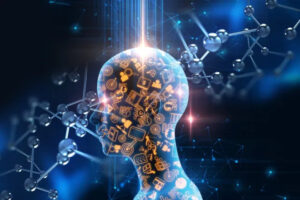 The rapid advancement of artificial intelligence (AI) has led to numerous debates surrounding its potential impact on various industries. Among the most contentious discussions is the fear that AI could render software developers obsolete. However, the reality is far more nuanced. While AI is poised to revolutionize software development, its role is not to replace developers but to augment their capabilities, streamlining the development process and enabling them to focus on more complex and creative tasks. In this article, we will explore the ways in which AI is reshaping the software development landscape and how developers can embrace this paradigm shift to thrive in the digital era.
The rapid advancement of artificial intelligence (AI) has led to numerous debates surrounding its potential impact on various industries. Among the most contentious discussions is the fear that AI could render software developers obsolete. However, the reality is far more nuanced. While AI is poised to revolutionize software development, its role is not to replace developers but to augment their capabilities, streamlining the development process and enabling them to focus on more complex and creative tasks. In this article, we will explore the ways in which AI is reshaping the software development landscape and how developers can embrace this paradigm shift to thrive in the digital era.
Automating Repetitive Tasks
One of the primary areas where AI is making an impact is in automating repetitive and mundane tasks in the software development lifecycle. AI-powered tools can now handle tasks such as code generation, testing, debugging, and deployment, significantly reducing the time and effort required by developers. With these routine tasks handled by AI, developers can focus on more high-level, innovative aspects of their work.
Intelligent Code Generation
AI-driven code generation tools are becoming increasingly sophisticated. By analyzing existing codebases, these tools can generate code that adheres to best practices and coding standards. Additionally, AI can help identify potential bugs and vulnerabilities, leading to more robust and secure software. As a result, developers can expedite the development process and spend more time refining complex algorithms and architectural decisions.
Accelerating Testing and Debugging
AI-powered testing and debugging tools can automatically identify and fix common errors in code, reducing the need for extensive manual testing and debugging. This not only improves software quality but also shortens development cycles, allowing companies to release products faster and more reliably.
Enhanced Collaboration
AI-driven collaboration tools can facilitate better communication and teamwork among developers. By analyzing development workflows and team interactions, AI can provide valuable insights to optimize collaboration and identify potential bottlenecks. This fosters a more efficient and harmonious working environment, where developers can focus on innovation rather than administrative overhead.
Empowering Non-Developers
As AI continues to evolve, it will enable non-developers to participate in the software development process. Low-code and no-code platforms that leverage AI can allow business analysts, designers, and domain experts to create applications without having to write code from scratch. This democratization of development empowers individuals from various backgrounds to contribute to the creation of software solutions, expanding the potential talent pool.
Challenges to Overcome
While the prospects of AI in software development are exciting, there are still challenges to overcome. Some of these include:
- Data Privacy and Security: As AI systems rely on vast amounts of data, ensuring data privacy and security is paramount. Developers must implement robust measures to protect sensitive information and comply with relevant regulations.
- Bias in AI Algorithms: AI models can inherit biases from the data they are trained on, leading to unintended consequences in software development. Addressing bias requires careful data selection and ongoing monitoring.
- Understanding Limitations: AI is powerful, but it is not infallible. Developers must recognize the limitations of AI tools and avoid over-reliance on them, especially in complex and critical applications.
Artificial intelligence is poised to revolutionize software development, not by rendering developers obsolete but by empowering them to work more efficiently and creatively. By automating repetitive tasks, generating intelligent code, and enhancing collaboration, AI will streamline the development process and foster a more inclusive development environment. However, developers must remain vigilant about potential challenges and continue to embrace AI as a valuable tool rather than a replacement for human ingenuity. As we move forward, the fusion of human expertise and AI capabilities will undoubtedly shape a brighter and more innovative future for software development.

